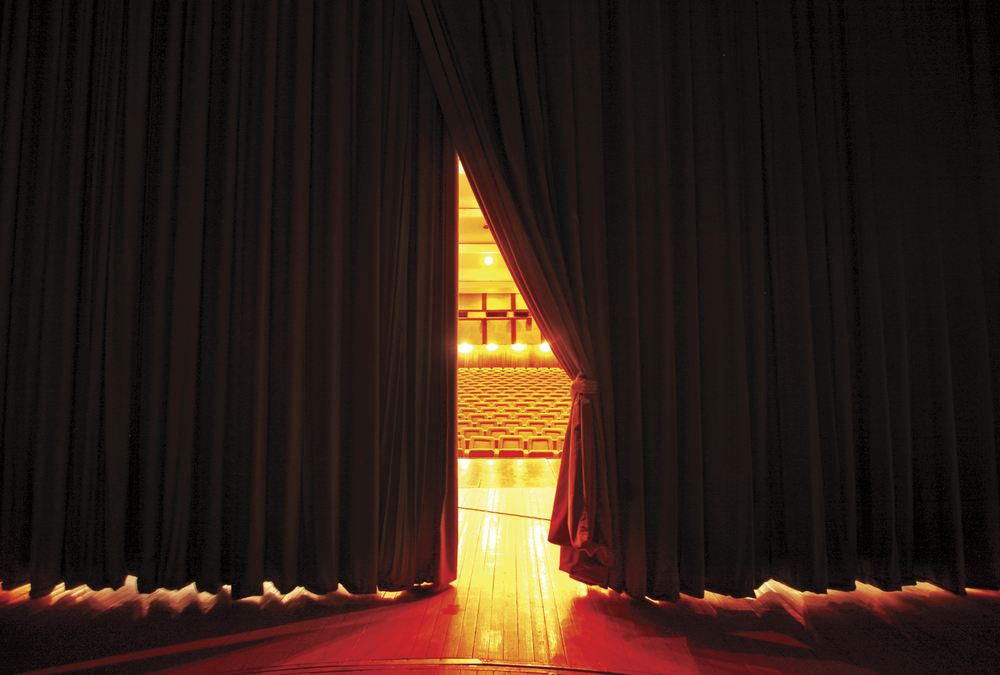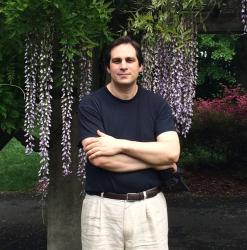When the Berlin Wall fell, it was a commonplace observation that there were more Marxists in New York City than in the USSR. If the new Oxford University Press book Theater & Human Flourishing is any indication, they have since relocated to various university drama departments. There they exploit the bourgeoisie and the proletariat equally, earning a steady income and fattening their pensions by instructing young people in the means by which to produce the worst theater possible.
Over and over, the book’s chapters praise revolutionary and “proletarian” theater, focusing on drama that aims to overthrow the established order. It soon becomes apparent, however, that the academy believes that the way to do this is to bore audiences into submission. Indeed, these accounts scrupulously avoid discussions of critically lauded plays, and they almost never mention such basic but vital concepts of good theater as the development of character and providing the audience with an engaging and amusing story. More typical is an enthusiastic account by Colby College professor Gwyneth Shanks, accurately titled “Refusing to Flourish,” about a Los Angeles–based theater company dedicated to avant-garde and revolutionary theater and its production of the play Here’s How (Refuted).
The play’s authors aim to mock the self-help industry and the concept of self-actualization, as they believe that achieving personal autonomy and self-satisfaction is something that stands in the way of the radical reconstruction of society. Instead of plot and characters, the play functions through a series of strange bits of direct address in which its authors and performers come downstage and reproach the crowd.
This is one of the hectoring speeches directed at the audience:
She comes back
So I want to say
So that’s what you want to do. Don’t leave.
So they
So when
So again
So what
So if
So you
So women
So this
So business
So I
So my
So we
So. Give it away.
Shanks see this as revelatory and vital, and in something approximating the English language she concludes her account of this extended exercise in irritating self-indulgence:
[The authors’] artistic practices make legible the ideological and biopolitical imperatives undergirding the self-help industry precisely through performance. Their materialized and performative transitions of self-help literature into and onto their bodies allow both to reveal the ways self-help seeks to regulate individuals’ bodies as a means of controlling the social body. Their work illustrates how self-help is thoroughly embedded in the ideological imperatives of neoliberal capitalism, liberal democracy, and nationalism. It is imperative to dwell alongside artistic propositions like those of [play authors and performers] Moon and Shinar, which encourage an examination of these tensions through what I have termed a refusal. Such refusals profoundly engage the body—incarcerated, porous, desirous, sweaty, gasping and panting—in service of disrupting a body politic. Their refusals are performed gestures at once radical and revolutionary.
The book is composed of chapter after chapter of this sort of inane pseudo-scholarship, which its editor, Boston University professor Harvey Young, has commissioned from assorted pedants.
Some of this is willfully misleading with regard to actual history.
Thus, another chapter, “Teaching Theater and Detroit History,” does an impressive job of misrepresenting what happened during that midwestern city’s riots in the 1960s. Its author, Lisa L. Biggs, wishes to teach young people about the causes of Detroit’s fires and looting in 1967. These occurred the year before Martin Luther King’s assassination and in the midst of what is usually called the “Summer of Love.” Anxious to learn more, Biggs truthfully recounts what she was told by older city dwellers. Both black and white, they explained to her that the riots were directed by a class of hardened criminals. However, Biggs willfully ignores this as it fails to serve her assorted prejudices, and she informs her readers that she is using the riots as a tool in her drama classes, an instrument by which she can inculcate young Detroiters in suspicion and hostility toward the police and against authority in general.
A third chapter, by Loyola University Chicago professor Kelly Howe, reports on TO, or Theater of the Oppressed, a type of Marxist stage presentation that first emerged in Brazil. Like so much of the theater described in the book, it aims to radicalize the audience. Yet, as it pays little attention to storytelling, inevitably its effects appear not upon the handful of people willing to suffer through its productions but upon the unfortunate performers who fall into the cultish theater companies promoting it. There they are most often exploited in a manner at least as ruthless as that enforced by any Victorian factory owner.
This brings up a topic that the book touches on only in passing in a single chapter: the susceptibility displayed by so many actors for recruitment into cults. That article, by the University of Washington’s Scott Magelssen, comes closest to being worth reading. His subject is the ways in which Method actor training can induce suffering in performers, something that is, of course, contrary to the larger aim of theater and the ostensible subject of the book: human flourishing. But, possibly for reasons of length, Magelssen, fails to go deeply into the matter, and he does not address the other ways in which actors can be taken advantage of. These include not only involvement in cults, Marxist and otherwise, but sexual exploitation by directors, producers, and agents, and requests of free labor for helping out on shows and in theatrical offices.
More regrettably, the book never looks in any substantive way at what goes into lasting theater and how one might create it. Several of the authors in the book refer to Aristotle, but the subject of what made ancient Greek culture unique and memorable is never broached. That is easy enough to understand. After all, the mighty dramatists who invented Attic theater were engaged in an expressly religious activity. They were telling and retelling tales about their gods, and they were inspired by religious faith. Similarly, the greatest of the modern dramatists, Shakespeare, was devout, and in a number of his best plays—like King Lear and Hamlet—he was tackling existential questions in terms of what this means within a society devoid of Christian faith in the first case and largely indifferent to its practice in the second. That is not a story that anyone in a typical present-day American drama department wants to talk about or acknowledge. To say such a thing would not be comme il faut. It would be far, far worse than wearing plaid with stripes.
To compose a serious book on theater and human flourishing requires an examination of these topics—as it demands we think seriously about the elements of great stories and what great roles for actors are. Yet these subjects are never addressed in Harvey Young’s impressively vacuous new “study.” An excruciatingly tedious book, Theater & Human Flourishing’s intent, it seems, is to endorse excruciatingly tedious theater.
It happens that I and the book’s editor attended the same college: Yale. I entered with the intention of majoring in English. I did not do so because I quickly discovered that its much talked-about literature classes were taught by professors who had only a passing interest in literature. In place of it, they had created a hollow and meaningless course of study in arcane literary theories. Mostly, this was gibberish.
Harvey Young majored at Yale in film studies. It may not be an accident that he then switched his field of academic inquiry to drama. After all, film studies continues to be an area in which there is fascination with actual movies. There is far less interest in taurine fecal matter. There is also less opportunity in a film studies program for charismatic personalities skilled at plowing the fields with this excrement to become exalted figures in the minds of impressionable undergraduates.
Although he is still in his mid-40s, Young is already the dean of the Boston University School of Fine Arts, and in 2021 he received the Distinguished Scholar Award from the American Society for Theater Research. An expert on “problematizing” the “black body”—a term he put in the title of one of his recent books—he is the academy’s current beau ideal. His acclaim is magnified by the attention given to that of his best-known student. Rightly or wrongly, he is credited with guiding the intellectual development of Meghan Markle, the Duchess of Sussex, his former pupil when he taught at Northwestern. Hence, as she lectures us about how we have made her life insufferably and unreasonably hard and how her status as a member of the British royal family has prevented her from flourishing, we may well be hearing an echo of her teacher’s voice.
More properly, this book should be entitled Theater & Human Suffering as it is evident that its numerous authors, academics all, are intent on producing as much pain and annoyance as can possibly be realized without actually drawing blood.

